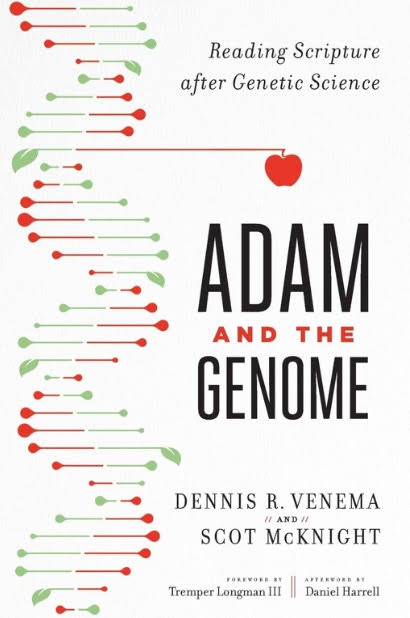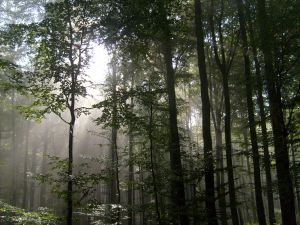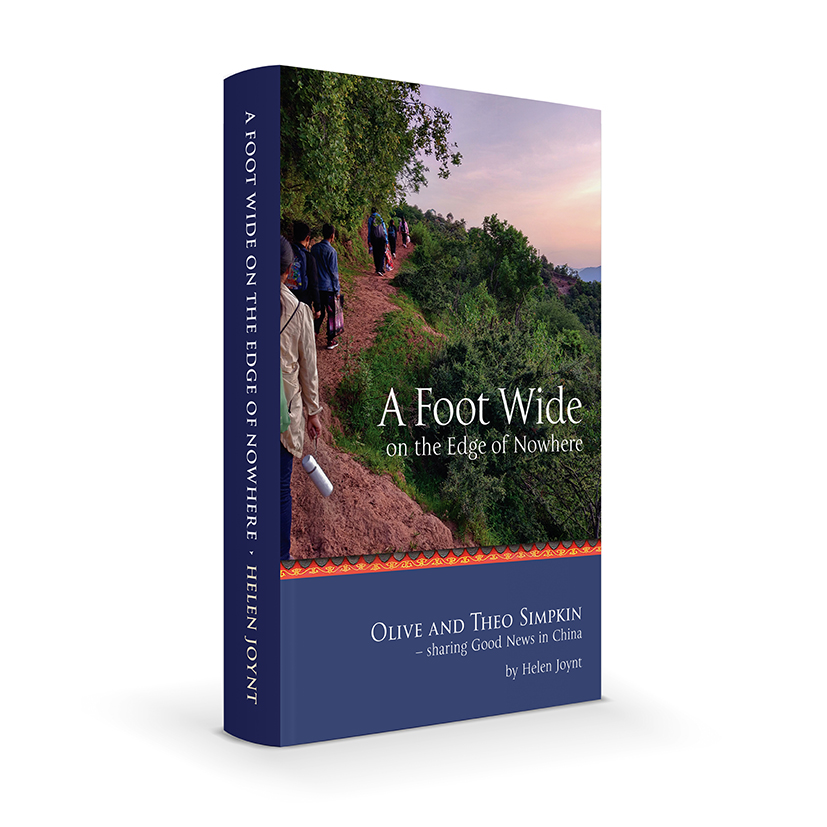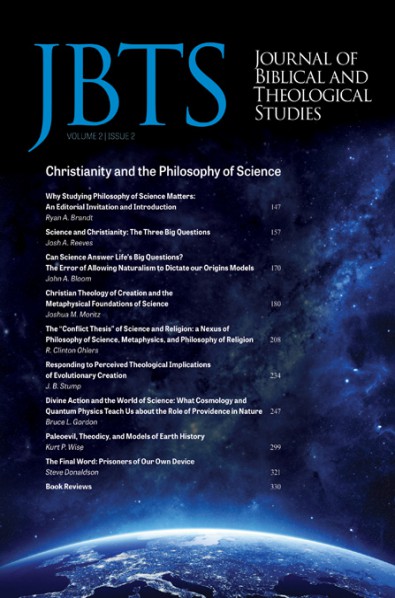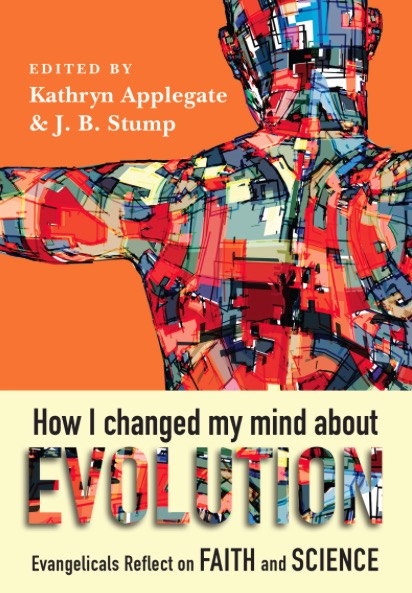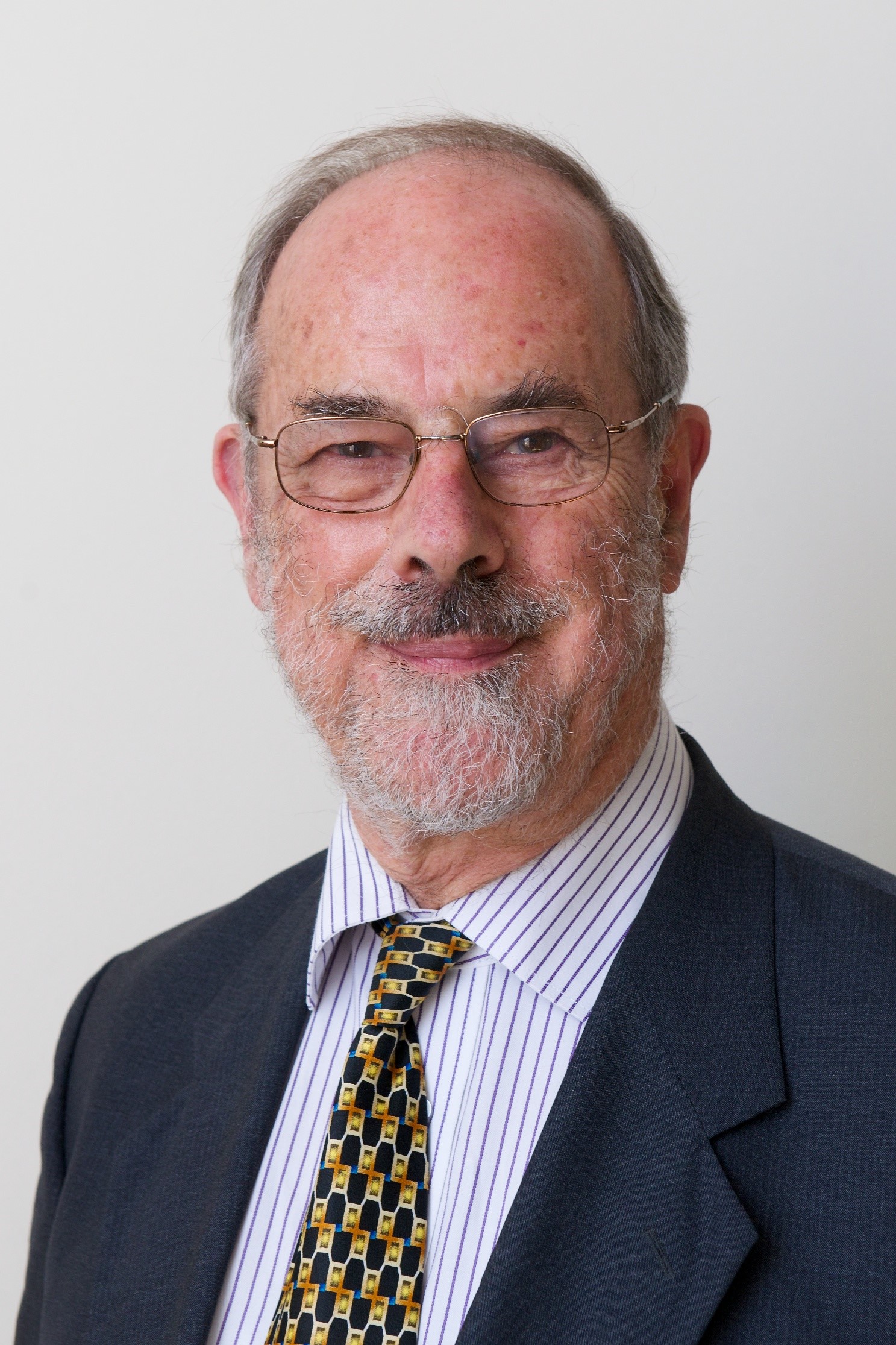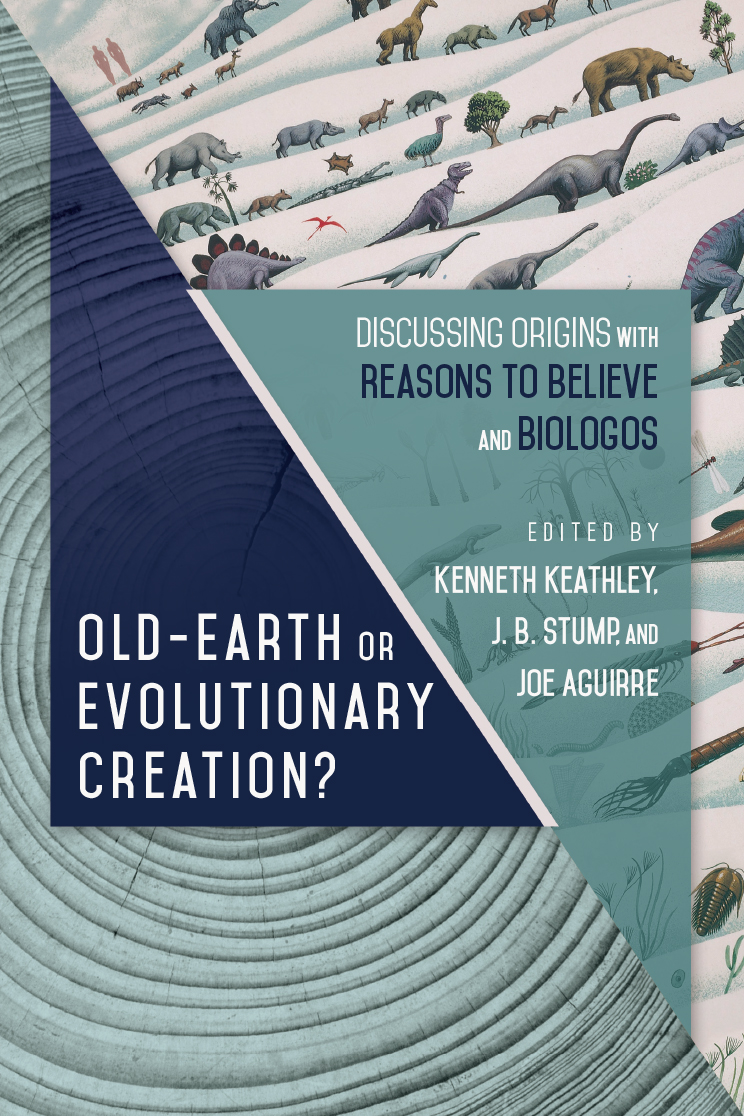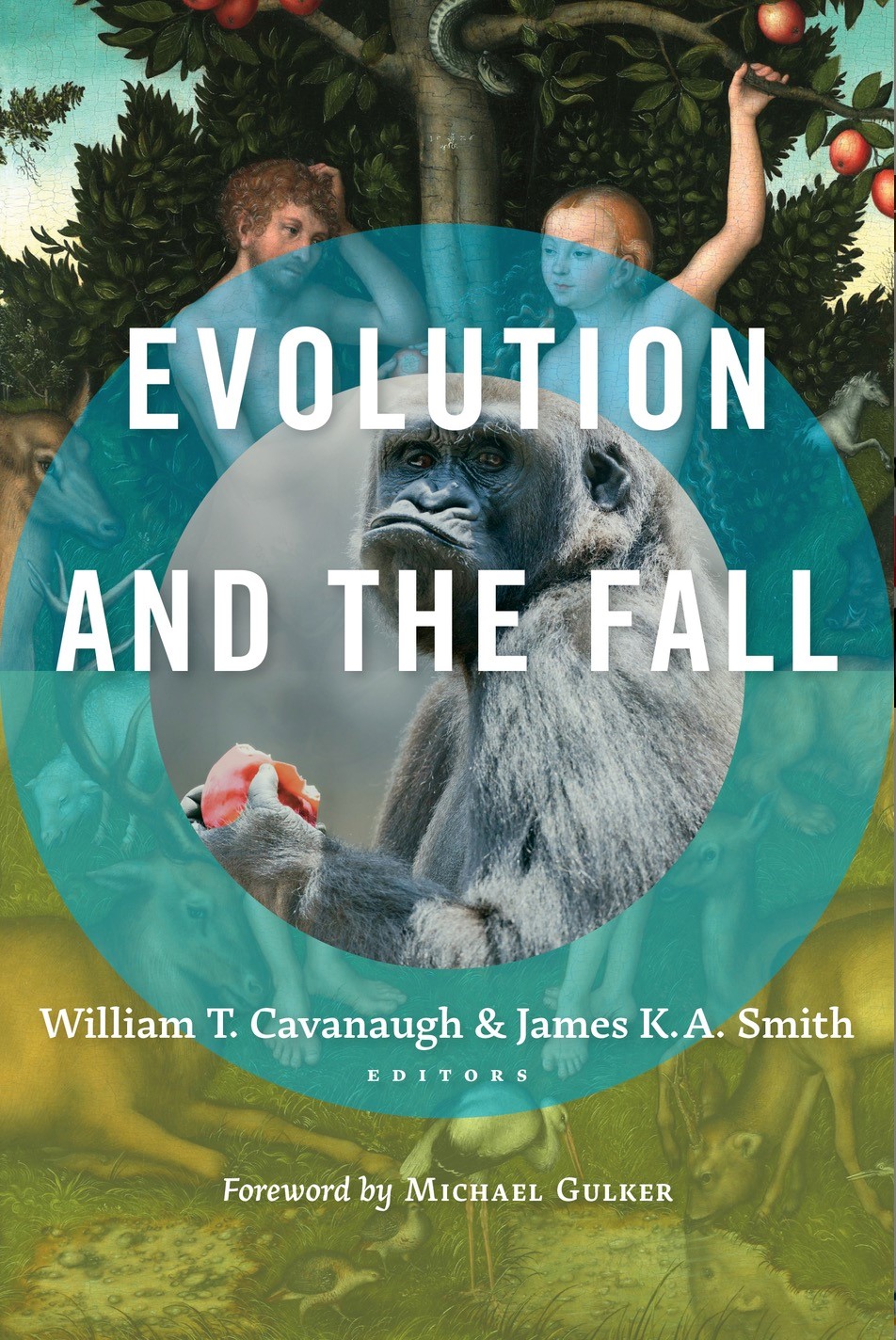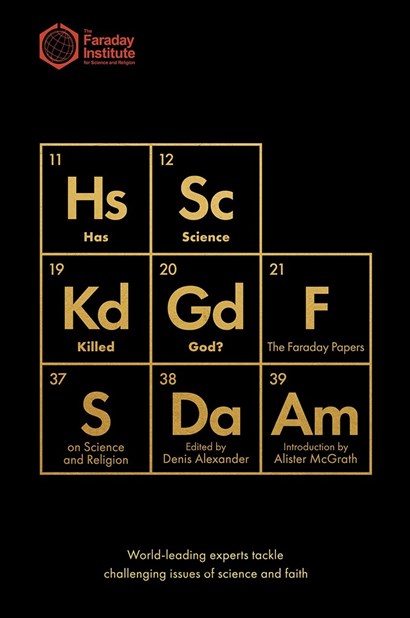


Christian Voices in the Environment Debate
Richard W Gijsbers, November 2016
Christian Voices in the Environment Debate
Richard W. Gijsbers
Richard was a forester working for over 20 years with the Victorian government in both field forestry and in policy development and planning for native forests. He has also had experience with the United Mission to Nepal working on reafforestation. He is now working as a consultant and administrator for a number of small organisations with his wife Glenys through their company Stockdale ACS.
Richard is currently studying for a Masters in Theology, exploring the idea of “Sin and Grace in Ecotheology.” Richard is also an ISCAST Fellow and the secretary of ISCAST.
Abstract
This paper arose out of ISCAST’s “State of Play” workshop held at Ridley College in Melbourne in August 2015. The workshop explored the possible hot topics in the science-Christianity debate that would be of concern in ten years’ time in a number of identified domains. This paper focuses on the “Stewardship of Creation” domain.
It argues that the debates about the environment are not only complex and difficult, but they are continually shifting; not least because there are so many sciences involved, few of which communicate with each other and which, themselves, continue to evolve. It notes that the values and uses society wants to apply to the environment are also changing and are impossible to specify over the long term.
Christians (individuals, local churches, denominations, and national churches) have a responsibility to be part of these debates and to contribute their voices in how we relate to the environment at any point in time. Christians however will not necessarily speak with the one voice to the same issue. They will disagree. Nor will they necessarily have the final word on any issue in the debate.
The paper identifies four voices that Christians can use in the debate: the prophetic voice, the priestly voice, the kingly voice, and the voice of wisdom or wise counsel.
Different Christians will use different voices, often from different perspectives. We cannot claim that any particular position is the only one that Christians can or should hold.
Keywords
Environment, church, prophet, priest, king, counsellor, environment debate, nature, creation, wilderness, grace, sin, ecotheology, wicked problem.
This paper arose out of ISCAST’s “State of Play” workshop held at Ridley College, Melbourne in August 2015. For a number of domains,[1] selected provocateurs were asked to present what they thought would be the hot topics in the science-Christianity debate in ten years’ time. This paper presents my reflections on “Stewardship of Creation”.
I write as a forester looking back on a career in forest management mainly in Australia and Nepal, including planning the management of native forests in Victoria, Australia. The planning work took into account the breadth of the forests’ values and uses to optimise their management through careful and transparent decision making. This paper draws on my experience and extends the thinking to reflect on humanity’s relationship with the environment more broadly than with just forests.
Throughout my career I have sought to understand what I was doing in the context of my Christian faith.
- Is there a right (or God’s) way of managing the environment (particularly that little bit of the forest estate over which I had some degree of responsibility)?
- Are the unfortunate outcomes (e.g. land degradation, deforestation, soil salinity, extinction of species and degradation of waterways) we have inherited in Australia purely the result of sinful and wilful neglect of biblical principles or are there other reasons for this?
- We humans have the capacity to think, decide, and take responsibility for our actions. We live in an environment where our knowledge is limited and often contradictory. Our understanding of the consequences of our actions will always be incomplete, and we have inherited situations that are less than optimal. At the same time our needs and demands on our environment are continually changing. How do we live, make decisions, and take responsibility for what we do in such a dynamic and complex situation?
- Does Christian theology have anything to contribute to the wider debate as to how humans should relate to the natural environment or is it an “in-house” exercise, just for Christians—perhaps an endorsement of a particular position (“Greenpeace at prayer”?)—to reassure us that such an agenda is within the scope of our Christian faith?
For the purpose of this paper I use terms as follows:[2]
- Creation: everything God has made and continues to make; “heaven and earth, all that is, seen and unseen” (as in the Nicene Creed). This includes the things that God has made that cannot be studied scientifically except on the rare occasions when the “seen” and “unseen” interconnect[3].
- Nature: the non-human parts of the visible creation; the flora and fauna and, more particularly, the biological and ecological processes that enable them to be present. As such it is but a small subset of the Christian understanding of creation in its fullness. Our humanity is bound very closely with nature as I have defined it here and anything that affects it is also bound to have an impact on us.
- Environment: the ecological and physical context in which we live, including the human-built (e.g., the urban environment), the human influenced (e.g., the rural environment), and wilderness: the areas where humanity has been excluded and where “the influences of modern technological society have become negligible” (NWI, 2003).
There is genuine concern about the environment and humanity’s impact on it. We are all being (and will be) affected by these impacts. We rely on the environment for:
- Resources: air, food, energy and shelter to name a few. Thus, we draw on the water, minerals, timber, sunshine, wind, etc.: the things we use and consume in our daily life. Many of these are tradeable and rural economies have been built around them (e.g., food, timber, minerals, and water, as well as electricity from coal, and solar, wind, and water resources).
- Values: the features that contribute to our quality of life (beauty, communing with God, cultural identity). In the light of bushfires in Australia, safety is also a value to be recognised. Values are “non-consumptive” uses and, while they may not primarily be economic or tradeable, much effort has gone into establishing them as being just as legitimate as tradeable resources (i.e., they are more than merely “aesthetics”). Economies have emerged to capitalise on these values and to supersede resource-based economies (e.g., through tourism).
- Resilience: the capacity of ecosystems on which we rely to recover from disturbance (e.g., bushfires, floods, volcanoes, earthquakes, etc.). Much work has been and is being done in Australia to establish the value of resilience, and to implement strategies to maintain resilient landscapes (e.g., Landcare, Land for Wildlife, and the reservation of representative vegetation classes). Resilience will be an important aspect of adjusting to the impact of climate change as it unfolds. Since many of these changes are human-induced, managing or reinforcing resilience is an increasingly important component of environmental management. Note that this is not to say that the recovered ecosystems will necessarily be friendly to humans.[4]
At the start of my career as a forester in the 1970s in Victoria the conflicts in forest management were largely over resource use (e.g., land for agriculture vs. forest, logging vs., say, beekeeping and so on). Unemployment was also important and there was a strong focus on resource harvesting to contribute to local employment.
Over time the demands on the forest have become much more diverse and complex. Many rural populations relying on local resource-based economies migrated to the cities[5] as the available resource shrank and the economies with it. Tourists and others started to discover and value special areas of forest and wanted to influence how these were managed. There was also a continual flow of new values being identified including: wilderness (Preece & Leslie 1987), old growth forest (Woodgate et al. 1994), biodiversity (Swingland 2001), rainforest (Meagher 1991, p. 267), and the like, and the protection of these was aggressively fought over.
A succession of droughts and the growth of the urban population in Victoria also shifted the focus of forest utilisation from timber to water harvesting.
And so the story evolved. I often wonder if the ever-changing name of the government department responsible for managing the forest estate in Victoria is in itself a reflection of society’s inability to decide what it wants from forests.[6]
In the mid-1980s I was involved in forest management planning for the Victorian government and one of our tasks was to produce summaries of the knowledge available for each of the identified Forest Management Areas. These were published as Statements of Resources, Uses and Values (e.g., Lugg et al., 1993) and they documented the values and uses we needed to provide for in forest management.
One of the things that struck me through this exercise was the number of sciences involved: silviculture, forest hydrology, geology, fire ecology, botany, wildlife ecology, soil sciences and land systems, entomology, anthropology, archaeology, economics and forest pathology to name some of the main ones.
Each science had its own techniques, language, peer groups, and protocols. Thus, for example, botanists predominantly used the Latinised botanical names when referring to individual plant species while wildlife ecologists happily used common names for their animals. Sampling and the use and perceived importance of statistics also varied significantly.
These sciences rarely spoke to each other and the boundaries of each created significant hurdles to communication between the specialists involved. All too often the scientists didn’t even try to surmount these and were happy just to interrelate within the scope of their particular disciplines. Peer reviews rarely spanned these boundaries and the forest planning exercise became an attempt to reverse the Tower of Babel—simply to get scientists to speak to each other.
It is not surprising therefore that there were times when scientific findings contradicted others so that some scientists would swear that “the science is in!” while another group of scientists was bemused that anyone could possibly think so.
Thus, for example, attempts to assess the threats to the Leadbeater’s possum in the Central Highlands of Victoria and then to create a secure future for this species have been bedevilled by this cross-disciplinary confusion (Keenan, 2015).
Yet another dimension to the situation is that many believe that nature has a right to exist separate from humans and their uses and values. They argue that we have an obligation to enable it to flourish in its own right and that this should not be overridden by human priorities (particularly for resources for the benefit of humankind, no matter how enlightened the utilisation of these might be).
The strategies advocated by such people usually focus on trying to remove, restrict or reduce human influences from the equation and allow natural processes to express themselves (i.e., eco-centricity).
This is not simply a matter of resource use versus aesthetics but a more fundamental issue about our responsibility towards the integrity of God’s creation and the right of humans to tamper with it for their own purposes and benefits.
Concern also extends to the potential that our global environment will become uninhabitable for humans as a result of our activity. It is not just a matter of preserving nature for itself; we could well be destroying the very basis of our existence on this planet.
In reaction to this there are others who are extremely doubtful that this is the case and who argue that there are values and resources that should be enjoyed and/or utilised and should not be sacrificed in the face of uncertain predictions about the future. This is the typical economists’ conundrum of working out the value of foregoing a known present benefit for the sake of an unknown and uncertain future one. The babble of sciences involved in making these predictions adds to the confusion and provides much scope for deniers to ignore warnings and to call for business as usual.
Stakeholders involved in the planning process from both inside and outside the Department were passionate about protecting their particular concerns and the ensuing debate became heated. No party believed that at least some of the others were not being malicious, power-drunk, or even corrupt. The whole debate became (and continues to be) riddled with suspicion and a sense of “us against them” and that just about any action could be justified in the attempt to protect one’s own particular values or suite of resources because the sceptics/deniers/vested interests refused to see things their way.[7]
Seeking to balance the range of requirements demanded of the forest estate is extraordinarily difficult. The range of uses and values, the number of stakeholders involved, and the extremely dynamic nature of both the politics and the sciences involved combined to create what is now called a “wicked problem” (Rittel and Webber 1973).
To quote from Rittel and Webber’s abstract of their paper:
The search for scientific bases for confronting problems of social policy is bound to fail, because of the nature of these problems. They are “wicked” problems, whereas science has developed to deal with “tame” problems. Policy problems cannot be definitively described. Moreover, in a pluralistic society there is nothing like the undisputable public good; there is no objective definition of equity; policies that respond to social problems cannot be meaningfully correct or false; and it makes no sense to talk about “optimal solutions” to social problems unless severe qualifications are imposed first. Even worse, there are no “solutions” in the sense of definitive and objective answers.
As Laurence J. Peter, of “The Peter Principle” fame (Peter 1969), put it: “Some problems are so complex that you have to be highly intelligent and well informed just to be undecided about them.” (Peter 1982)
For Christians, there is the added dimension of our relationship with the one who created and sustains this world. Some relevant questions include:
- What scriptural and theological principles should apply in addressing ecological issues?[8]
- Is there anything to be gained in the public domain in defining a Christian moral or ethical dimension to environmental management, when the Christian influence on the rest of society is waning anyway?
- Is there a Christian perspective on the environment that can add a valuable and credible insight into how we should tackle this issue other than just an automatic endorsement of one particular position or other, or currently understood “best practice”?
- How can we make our Christian perspective understandable and relevant to the thinking of the wider, secular community and so contribute to the debate in a constructive manner?
- With what authority do Christians speak to the rest of the world? Can we expect others to take notice of our case just because we speak as Christians and because we feel that we have a mandate from God through our particular understanding of Scripture?
- Does the importance of environmental issues remove from the advocates and users of nature (including Christians) the usual standards that apply to social discourse? Exaggeration and hyperbole seem to be acceptable but lying, theft, vandalism, physical violence, or legal and political chicanery?
In short: with what voice does the church speak to the wider community about the environment?
- The thundering prophet pronouncing “Thus saith the Lord …”? and then identifying and condemning some act of environmental bastardry;
- The concerned pastor pronouncing “Comfort ye, …”? reassuring the faithful that all will be well;
- The incensed voice calling judgement on those who would set the environment on an idolatrous pedestal, distracting us from our “real” mission of saving souls?
- The “non-voice” of those who place their trust in God’s covenant to Noah that “never again will there be a flood to destroy the earth.” (Gen 9:10)?
- The voice calling for justice either for the land or for those affected by the decisions relating to the land?
And who is going to listen anyway? Hasn’t the church been discredited as a voice speaking on scientific issues? Or moral issues even? The scandal of paedophilia has significantly damaged the Church’s moral standing in the community so why would it listen to any moral pronouncement that Christians might make on environmental matters?
The reality is that the Christian church is seen to be just another (and, in some cases, discredited) voice in the community discussion about how we are to live with the environment and we have to re-earn the right to be included in that discussion. Christians no longer have a veto over what the rest of society decides to do however strongly we might feel about the mandate we think God has given us on the matter.
The priority of one use or value of the environment over another will vary with time and place, and our knowledge of the relative importance or impact of that use or value will also vary. The argument over which is more important is the essence of the debate. This will remain so over the next ten years although the priorities will shift as our needs or demands on the environment and our understanding of them change. Ultimately the decision about which use or value takes precedence will be political and not moral, mathematical or scientific.
A common strategy in the debate is for advocates to lock on to one use or value (or suite of these) and ignore or decry the others. In south eastern Australia there is currently a campaign to create a “Great Forest National Park” largely to protect the habitat of the Leadbeater’s possum (My/Forests, 2014). Prof. George Ellis, when he was in Australia, referred to this sort of campaign as “environmental fundamentalism”. He defined fundamentalism as “someone who takes part of the truth and presents it as the whole truth” (Ellis, 2007).
My observation is that a focus on any one use, value or threat will be over-ridden with time and another will soon rise and eclipse it (no matter how important or urgent it might seem now). I am fascinated how quickly the discussion moves in these situations and how an urgent issue today can so quickly become a memory. Thus Randall Holcombe asked the question: Should We Have Acted Thirty Years Ago to Prevent Global Climate Change? (Holcombe, 2006).
In his paper, he outlined the strategies that were proposed in the 1980s to deal with the then understanding of climate change and described how they were nearly implemented (including even damming the Bering Strait!). In hindsight, such strategies would have been catastrophic. In other words, we can act too promptly and, despite all the best intentions, we could be disastrously wrong.
In the ten-year timeframe of the ISCAST workshop, the environment/ creation care debate will go through many iterations and Christians will be called on to respond to each one, each with their own Scripturally-based justifications which will reflect more the concerns of those involved rather than any consistent hermeneutic. The nature of the debate however will be the same: multi-faceted, many incomplete sciences, iconic issues, radical strategies with uncertain consequences, and passionate advocates for and against the issue. Throughout the turmoil there will be politicians seeking to come to terms with the debate and trying to decide what to do.
Thus climate change is an issue of great concern. It is not the first such environmental issue nor will it be the last. My observation is that similar issues have been resolved in one way or the other in the past often with unexpected twists including:
- Adjusting to the new order or learning to cope (e.g., deforestation in Palestine (Houston, 1974, Thirgood 1981), mass wasting in Nepal (Metz, 1991)).
- Society deciding that it will no longer tolerate the situation and finding the technology, legislation and finance to deal with it (e.g., cleaning up the Thames (Gray 2010), tidying up Kathmandu[9]).
- New technologies emerging to resolve the situation in unexpected ways (e.g., cars replacing horses in the 1900s (Nikiforuk, A, 2013), briquettes replacing firewood in Melbourne after WW1 (we didn’t refer to Melbourne as the “Big Smoke” for nothing), oil replacing briquettes, gas and electricity replacing oil, solar electricity replacing that from brown coal for domestic power (at least, to date, partially)).
- The issue or concern turning out to be not the problem we thought.
I expect that climate change will be addressed in each of the first three ways outlined above with humans (both corporately and individually):
- reconfiguring their energy use and other activities that generate CO2 (adjusting).
- capitalising on new technologies and strategies to help both ameliorate the CO2 levels and cope with the new situation (addressing).
- adapting to the new conditions and copping the pain (adapting).
Our demands on the environment will also change so that some of today’s proposed solutions will become irrelevant or rejected as being worse than the problem. I imagine that, in ten years’ time we will be well on the way with each of these strategies and will know far more, first hand, about what works and what doesn’t. This will in turn generate its own challenges, inequities and disruptions that will only then become apparent.
The best current advice with regard to responding to Wicked Problems that I have been able to find is to set up broad-based conversations where people who will be affected can meet and explore the matter from the perspective of each facet of the problem. In such situations, subject matter experts with their linear thinking can be a hindrance. Through these conversations alternative strategies and new ways of seeing and addressing the challenges can be identified and explored allowing for adaptive management of the situation and, through that, continuous learning as the situation evolves (Campbell et al., p. 9).
I cannot help but think that, in such an environment, the church can have a very positive role with its network throughout the areas affected, its ranges of expertise and its links to the whole human experience and not just to one aspect of it. Individual churches and regional groupings have played very constructive roles in modelling responses to the issues and acting on the concerns of their members.[10]
So, with what voice should Christians speak to the rest of the community? I argue that the following points are relevant.
- Christians (individually and collectively) have an obligation to be a part of this conversation and to speak both as Christians and as citizens. This is not because the revelation we have received in Jesus Christ and through the Scriptures gives us the One and Complete Answer to the challenges raised. It does not. But we are citizens of the society in which we live and, as such, we are obliged to contribute. First, because we live in a democracy and we should contribute to the democratic process of working through these issues. Second, as Christians who serve the creator of the world we live in, we do have perspectives that are relevant to the issue of living with and in our environment. We have an obligation to develop and offer these perspectives (albeit humbly and as contributors to an evolving exploration and not as holders of the Ultimate Insight (ref: 1 Peter 3:15ff)) and offer this to the wider community as it also struggles with these challenges.
- The church cannot and will not speak with only one voice. We are a broad church (pun intended) and we come at these issues from different perspectives. While an individual Christian, community, denomination or national body can become convinced of the need for a specific course of action (as they should strive to do) that doesn’t mean that their insights will be universally and timelessly applicable. There will be other approaches just as applicable in different circumstances.
- The church no longer has power of veto on moral issues in the Australian society. I witness the gay marriage debate and the church struggling with its role in trying to influence the outcome of that issue. Relating to the environment over the next ten years, the church has to learn to be one (or some!) of the voice(s) in the debate and we will need to listen as well as speak.
Regardless of the message that they would want to share, I believe that individual Christians, local churches, denominations and the church universal have (at least) four “voices” in this complex situation where so much is feared and so little is known. I briefly outline them here:
- A “prophetic” voice, calling for change. The KPI (Key Performance Indicator) of the prophets is the extent to which they are noticed and the urgency of the message. The prophet is George Bernard Shaw’s “unreasonable man” on whom human progress depends[11]. Note that prophets do not speak with just one voice. One prophet will speak to a concern but others will speak to other concerns that may well contradict the first message. There will also be “counter-prophets” who will speak on other aspects of an issue (e.g., a voice counter to prevailing prophecies, pointing out the consequences of a proposed course of action). These voices could well be speaking out of the Christian faith of the speakers. However, prophets speaking thus will not necessarily be right. Scripture tells us that only time will tell us that (Deut 18:22, Jer. 28[12]).
- A “priestly” voice: This includes (at least) both a pastoral and an intercessory function: speaking words of comfort and providing support to those who have been/will be hurt and affected, and interceding in prayer on behalf of the community and of nature. Theologically, I believe this voice to be under-developed and in need of attention.
One of the priestly functions is also to lead in worship. The idea of the Christian priesthood leading creation and the rest of humanity in worship of the Creator strikes me as a very rich image worthy of yet more thought.
- A “kingly” voice: that of the decision makers who have to bring about outcomes within a situation. There will be Christian statesmen, politicians, business leaders, public servants and consultants who will have to sort through often difficult and conflicting circumstances and the hubbub of prophetic voices (a politician, after all, is only held vertical by equal pressure on all sides!) that will invariably involve compromise. The purity of purpose of the prophets is not for these people. However, in the words of the UK business consultant, Charles Handy: “I am on the side of the kings, the people who make things happen…. No one would want the prophet to run the show (Handy, 1991 p. 19).[13] These people, regardless of our feelings about their politics, need our prayers (although not necessarily our unthinking support).
- A voice of wisdom: I argue that there is a Christian contribution that we can make to the issue that is not directly linked to any specific “solution” that one party or another might advocate (i.e., it is not partisan as the prophetic voice must be). As Christians we can be assured of God’s omnipotence and grace. We are also aware of God’s deep and abiding concern for what has been made and that we can speak with an eternal perspective, reflecting forgiveness and the assurance that God is in charge[14]. The German theologian, Helmut Thielicke, explores this thinking (albeit not relating to the environment) in the second volume of his Theological Ethics focussing on politics (Thielicke 1969).
Currently much of the Christian response to the environment debate has been to emphasise the importance of God’s creation (to God and to us), to assert that we have been neglecting this at our peril and that the consequences of this are dire. Many commentators go on from there arguing for a new morality and a new law seeking to redress the situation. The Apostle Paul’s understanding of the law in Romans warns us that this way leads to futility. Applying Paul’s teaching about grace to the urgency of our concerns about the environment has the potential to offer a real Christian perspective to the debate (although not a “solution”). We would do well to identify and cultivate the voices that reflect this as they emerge in our midst.
The next ten years will bring about many changes in our understanding of the environment and our demands on it. If we look back to the last ten years, the things we argued about in the debate have changed considerably (Which values should be protected? What activities are seen to threaten those values? What strategies will be fruitful and which should we jettison?). This change will continue and accelerate as society itself continues to change. Locking ourselves (and our Christian message) to one particular issue, value, concern or strategy at the expense of adopting a broader outlook will quickly date our contribution and our relevance.
I passionately believe that Christians need to be part of this process, not as people who claim to have all the answers but as people who recognise the challenges confronting us, the processes whereby the necessary changes occur and how we can influence the directions society takes.
I also believe that Christians have a perspective arising out of our relationship with an omnipotent God who loves his creation (including humanity) and who is in ultimate control. That said, Christians also have a tradition of acting to bring about change for good because we believe that is what God wants us to do. Part of our belief in God’s omnipotence is in God’s ability to make our efforts fruitful within the messiness and clumsiness of what we do.
ISCAST is a part of the church and it needs to be aware of the role it can play in so-called “Creation Care.” It has a unique opportunity to be a forum for the conversations so necessary in exploring options and aspects of our relationship with our environment. It should seek to do this as unto God, recognising and respecting the other voices with which the breadth of the Christian community (and others) will speak. That message will need to be renewed continually (and not just over the next ten years).
Acknowledgements
Several people have read and commented on this paper helping me to hone my ideas. These include Prof. Andrew Bennet, Assoc. Prof. Alan Gijsbers, Ian Hore-Lacy, Dr Chris Ives, and Prof. Tom McLeish. They have challenged me with their comments and forced me to think deeper on what I have represented here. That said, these thoughts are my own and do not necessarily represent theirs on the subject.
Reference list
Ellis, G, 2007, viewed 3 January 2016 http://www.mth.uct.ac.za/~ellis/Fundamentalism.pdf
Gray R, 2010 The Clean up of the River Thames viewed on 28 January 2016 http://www.telegraph.co.uk/news/earth/wildlife/8059970/The-clean-up-of-the-River-Thames.html
Handy, C., 1994 The Empty Raincoat: Making sense of the future Arrow Books
Holcombe, R. G. 2006, Should We Have Acted Thirty Years Ago to Prevent Global Climate Change? Viewed on 3 January 2016 www.independent.org/pdf/tir/tir_11_02_08_holcombe.pdf
Hore-Lacy, I. 2006 Responsible Dominion: A Christian Approach to Sustainable Development Regent College Publishing , Vancouver, British Columbia
Houston, J. M., 1974 Article on Palestine in the New Bible Dictionary, IVP, London
Keenan, R., 2015 A Great Big New Forest park Won’t Save Leadbeater’s Possum viewed on 5 April 2016 http://theconversation.com/a-great-big-new-forest-park-wont-save-leadbeaters-possum-41237
Lugg, A., Marsh, P., Bartlett, A., & King, F., (comp) (1993) Statement of Resources, Uses and Values for the East Gippsland Forest Management Area. Department of Conservation and Natural Resources, Victoria.
Meagher, D. 1991 The Macmillan Dictionary of The Australian Environment, The Macmillan Company of Australia
Metz, J. J. 1991, A Reassessment of the Causes and Severity of Nepal’s Environmental Crisis, World Development Vol. 19, No 7 pp. 805-820.
My/Forests Inc 2014, viewed 18 April 2016. http://www.greatforestnationalpark.com.au/.
Nikiforuk, A, 2013 The Big Shift Last Time: From Horse Dung to Car Smog; The Tyee viewed 3 January 2016. http://thetyee.ca/News/2013/03/06/Horse-Dung-Big-Shift/
NWI 2003, National Wilderness Inventory, Australian Heritage Commission, Commonwealth of Australia, viewed 10 December 2015, http://www.environment.gov.au/node/20119
Peter, Laurence J., (1969) The Peter Principle: Why Things Always Go Wrong, Harper Collins Publishers
Peter, Laurence J. (1982), Peter’s Almanac William Morris & Co
Preece, K. & Leslie, R. 1987 A Survey of Wilderness Quality in Victoria: A Report to the Ministry for Planning and Environment, Victoria & the Australian Heritage Commission.
Rittel, H. W. J. and Webber, M. M. (1973) Dilemmas in a General Theory of Planning, Policy Sciences 4, 155-169 Elsevier Scientific Publishing Company, Amsterdam
Swingland, I. R. 2001. Definition of Biodiversity, in Encyclopaedia of Biodiversity, Pp. 377-391, Ed S. A. Levin. Academic Press, San Diego. As quoted in http://www.wwf.org.au/our_work/saving_the_natural_world/what_is_biodiversity/ viewed on 19 September 2016.
Thielicke, H. 1969, Theological Ethics Volume 2: Politics Fortress Press, Philadelphia
Thirgood, J. V., 1981 Man and the Mediterranean Forest Academic Press, London
Woodgate, P. W., Peel, W. D., Ritman, K. T., Coram, J. E., Brady, A., Rule, A. J. and Banks, J. C. G. 1994, A Study of the Old-Growth Forests of East Gippsland. Dept. Conservation and Natural Resources, Victoria
[1] For the record these were: 1. Stewardship of Creation; 2. Use and Abuse of Science; 3. Culture Wars; 4. Body, Mind & Soul; 5. Evolutionary Biology and Theology; and 6. Scientific Literacy.
[2] I realise these terms have been used variously and that there will be those who disagree with my usage, sometimes strongly, for example: Does “nature” necessarily exclude humanity? Are values something we actually receive from nature or are they just attributes that we cherish—merely aesthetics? In the name of pragmatism, I have adopted the definitions outlined here.
[3] Several reviewers of this paper have challenged my attempts to label the unseen parts of creation as “supernatural” or “miracles.” I understand their discomfort with such terms and so have not used them here. Somewhere in this debate, however, Christians will need to come to terms with the unseen aspects of God’s creation (if only to recognise God’s divine activity and active involvement). The term “Creation Care” seems to me to have become limited to the care of “nature,” as I have defined it here, by humans acting in isolation and not the fullness of all that God has made, nor in recognition of God as an active agent in that creation.
[4] For some, Genesis 1:28 summarises our relationship with and responsibility for nature under the term “stewardship” (e.g., Hore-Lacy 2006) where that term is used to refer to the wise, just, sustainable, and responsible utilisation of resources (i.e., there is a focus on the resources provided by nature). For others this perspective is anthropocentric and therefore biased against God’s creation, as it has been bequeathed to us.
[5] I remember locals claiming that they exported their unemployment to the cities.
[6] In the 1980s the then Forests Commission, National Parks Service, and related agencies combined to become the Department of Conservation, Forests and Lands. Since then the Department’s name changed almost continually until, at one stage, it became the Department of Conservation and Natural Resources or CNR. Staff dubbed this the Department of Continuous Name Review. At the time of writing it is the Department of Environment, Land, Water and Planning.
[7] Speaking from personal experience, this is perhaps one of the tragedies of the environment debate. Many of the proponents in the debate have developed a strong antipathy towards each other. The outcomes of such attitudes have often led holders of these attitudes to believe that whatever is done to such people is justified, and some very nasty things have been done to fellow humans in the belief that doing this was in the name of protecting the environment.
[8] Pope Francis’ encyclical Laudato Si’ is perhaps the latest attempt at this.
[9] I re-visited Kathmandu in 2014 (before the earthquakes) for the first time in nearly 20 years. In that time many of the streets had been widened, the footpaths had been cleaned, and much of the air pollution from diesel fumes had disappeared apparently because trucks had been excluded from the city from dawn to dusk. The change was remarkable and, although there are still many problems, the citizens of Kathmandu had absorbed the cost and inconvenience involved to deal with the pollution in their city.
[10] Whitfords Anglican Community Church in Perth, WA, the local Uniting Church community in Pomonal near the Grampians in Victoria struggling with bushfires, the rural downturn, and a host of other challenges and the Canberra and Goulburn Anglican Community come to mind as examples of this. While these and other communities like them haven’t “saved the world”, these are models of constructive engagement following the issues through where they lead. Confronting Wicked Problems means operating in these ways at these levels; Grand Plans don’t “solve” the problem they merely shift it.
[11] “The reasonable man adapts himself to the conditions that surround him….The unreasonable man adapts surrounding conditions to himself … All progress depends on the unreasonable man” (G. B. Shaw).
[12] The story of Hananiah in Jeremiah 28 poses a problem for those with a “high” understanding of prophecy. Hananiah predicted that the king of Babylon would not persevere in the destruction of the LORD’s house and the ending of the kingly line of David (much like Isaiah did before him some 200 years earlier). Jeremiah disagreed and Jeremiah was right. It seems that the only problem with Hananiah as a prophet was that he was wrong. I argue that the Christian prophets will seek to pronounce God’s perspective on an issue as an expression of their faith but, like Hananiah, they may not be right.
[13] Handy’s full quotation: “‘There are kings and prophets, I was always told,’ said Tony Benn, the British socialist politician. ‘The Kings have the power and the prophets have the principles.’ I am on the side of the kings, the people who make things happen, but every king needs his prophet, to help him, and increasingly her, keep a clear head amidst the confusions. No one, however, would want the prophet to run the show.”
[14] Without, of course, using this as a reason to not be involved or to seek to “do evil that good may result” (Romans 3:8).
